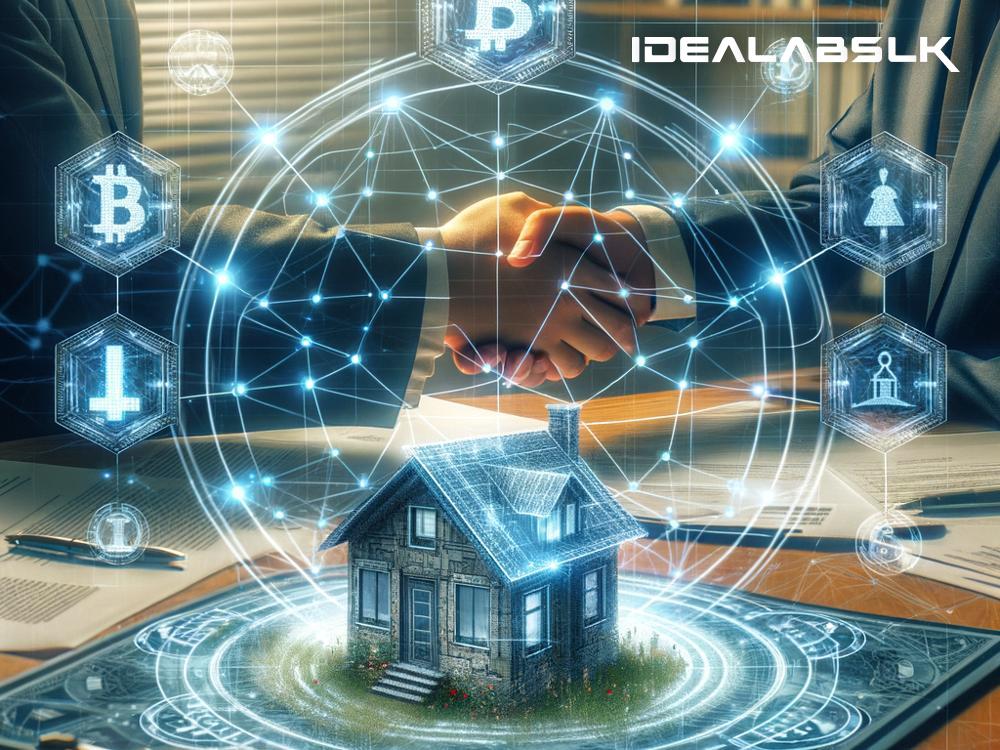Title: How Blockchain Revolutionizes Property Transactions for Efficiency and Security
In today's digital era, buying or selling property can still feel like a ride on a bumpy, outdated road. From heaps of paperwork to the painstaking wait for clearance and approval, the process can sometimes seem unnecessarily complex and slow. However, the emergence of blockchain technology is paving a new way for property transactions, promising a journey that's faster, smoother, and safer. But what exactly is blockchain, and how is it making property deals more efficient and secure? Let's break it down in simple English.
Understanding Blockchain
Imagine a notebook that records every transaction you make. Now, imagine this notebook is duplicated thousands of times across a network of computers. This network is designed to regularly update this notebook, and everyone has the same version. This is essentially how blockchain works. It's a technology that distributes information across a network in a way that makes it virtually impossible to alter, hack, or cheat the system. This characteristic is what makes blockchain incredibly valuable for various sectors, especially real estate.
Efficiency Through Smart Contracts
One of the significant hurdles in property transactions is the lengthy process it often involves - from verifying ownership and conducting property inspections to securing financing and closing the deal. Blockchain introduces something called 'smart contracts,' which are self-executing contracts with the terms of the agreement directly written into lines of code. These contracts automatically enforce and execute the terms of the agreement once conditions are met, cutting down the need for middlemen like lawyers or bankers.
This means much of the paperwork becomes unnecessary, and transactions that used to take days or weeks can now be completed in a matter of minutes or hours. The efficiency doesn't just stop at time saved; it also reduces the costs associated with these middlemen, making property transactions more affordable.
Increased Security and Transparency
Traditional methods of property transactions involve a lot of trust. You have to trust that the seller is the rightful owner, that the property doesn't have any undisclosed issues, and that all parties involved are being upfront and honest. Blockchain introduces a level of transparency and security that can significantly reduce the anxiety around these issues.
Since every transaction on a blockchain is recorded on a block and distributed across a network of computers, it's incredibly difficult for any information to be altered or falsified. Each transaction is also encrypted, ensuring that personal data is kept secure. This makes fraud much less likely and gives everyone involved a clear and trustworthy record of the transaction.
Moreover, because blockchain is essentially a transparent ledger, all parties can view the transaction history of the property, including past ownership, any disputes, or issues with the property. This visibility can build trust among parties and hasten the decision-making process, knowing there's a reliable source of information available.
Challenges and the Path Forward
While blockchain technology presents a promising avenue for revolutionizing property transactions, challenges remain. Regulatory hurdles, technological adoption across the real estate industry, and the digital divide among populations are significant barriers that need addressing.
For blockchain to fully realize its potential in this space, regulatory bodies must establish a clear framework that recognizes and enforces smart contracts. Similarly, real estate professionals and buyers must become more tech-savvy, embracing new technologies that could forever change how property transactions are conducted.
As these challenges are gradually overcome, the future where blockchain makes property transactions not just more efficient and secure, but also more inclusive and accessible is not far off.
Conclusion
Blockchain technology is more than a buzzword in the realm of real estate; it's a groundbreaking innovation that promises to transform property transactions into a process that's faster, cheaper, and safer. By leveraging smart contracts, ensuring security and transparency, and ultimately making it easier for people to buy or sell property, blockchain is paving the way for a future where real estate is more accessible and less daunting for everyone involved. As we continue to navigate this digital revolution, one thing becomes clear: blockchain in real estate is not just the future; it's the present.

